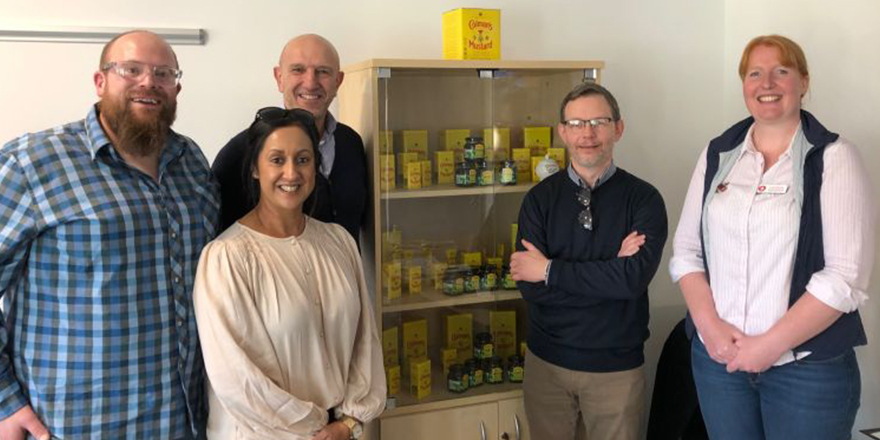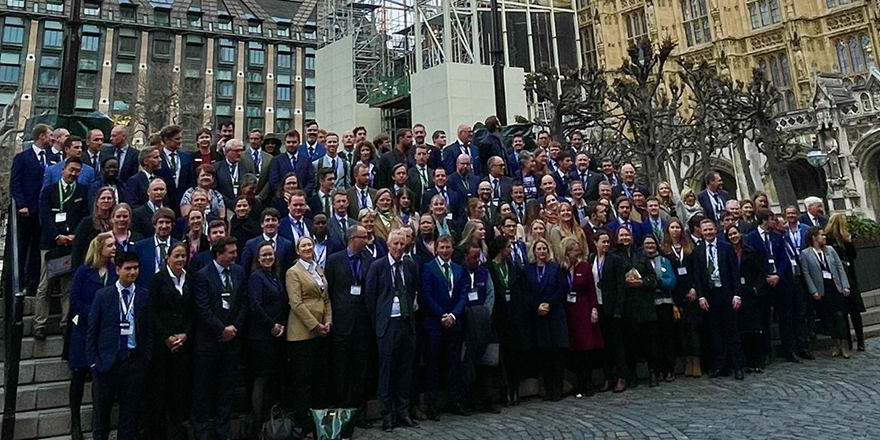
Parmindar Singh

Background
The 2022 Nuffield Contemporary Scholars Conference (CSC) was held during March 2022. Nuffield 2021 and 2022 Scholars travelled from 15 countries and were hosted in Norfolk, UK. Prior to our departure in March the New Zealand Government announced their plan to relax border restrictions, welcoming New Zealand residents back to New Zealand. With this announcement we had the opportunity to attend the CSC in the UK and represent Nuffield New Zealand.
Pre-conference, Lucie Douma and I spent time with Nuffield Scholars David and Christine Hill in Norwich. David and Christine introduced us to agriculture to Norfolk, where we visited their arable farming business, visited friends of the Hills who were dairy farmers in the village and toured the local town and village getting an insight into farming in Norfolk. David and Christine shared with us their farming and family history and the challenges the UK farming sector was facing.
Farms in the Norwich area consisted of generational farming with long-time family connections to the land and estates. Larger estates like Holkham Hall consisted of variable farming and commercial enterprises and considerable land ownership. These estates are well recognised in the UK, along with their family ownership and heritage and in some circumstances their association to the House of Lords.
The UK Farming Situation: March 2022
The Russian invasion on Ukraine, has created a global humanitarian crisis. In the UK, it signified the immediate concern for food security and the additional pressure on farmers who had already been challenged over the past two years. Spiralling input costs were front of mind, particularly with wheat, fuel, energy and fertiliser costs.
Russia’s significant control over the supply of gas though the UK and the EU, imposed not only an increasing input cost on farm, however also increasing household and living costs. General conversation with the UK public, posed an anxious population with the on-going impact of covid-19 on businesses and the additional pressures from the Russian invasion on the Ukraine. It was interesting to note, that although the general UK population was sighting increasing food costs in the supermarkets, when comparing UK super market food costs with New Zealand super market food costs, it appeared that the cost of food in the UK was significantly less that the cost of food in New Zealand.
Additional changes in agriculture in the UK also reflect the transition from the long-standing EU scheme of agricultural subsidies (Common Agricultural Policy [CAP]) to the phasing out of the subsidy scheme with the exit of the UK from the EU. Post Brexit, the UK is navigating the challenges of staff shortages and increasing costs of production (which are likely to see the cost of local produce continue to increase), creating additional pressure for UK farmers.
Regenerative Agriculture was a topic discussed often and referred to as an opportunity to restore soil health and the quality of waterways, whilst reducing greenhouse gas emissions and enabling a healthy ecosystem; expanding the conversation of the global environmental challenge.
UK dairy farmers also expressed the increasing pressure and scrutiny they were facing from the public on environmental and animal welfare issues.

The CSC Agenda
The CSC agenda included presentations from agricultural leaders, identifying agriculture and the food of the world, British agriculture in a global setting, the impact of agriculture on climate and the global environmental challenge.
The all-important health, safety and wellbeing also featured on the agenda, with some real-life take-home messages and scenarios. A visit to the Norwich Research Park, highlighted the research and innovation undertaken in searching for solutions to worldwide challenges in food-related disease and research into plant sciences and species.
We also visited the Norwich Food Enterprise Park. This park has been created to encourage and support food production, processing and agriculture through co-location of commercial enterprises. Our visit to the park provided us with an opportunity to participate in a small group activity to come up with solutions to challenges four businesses in the park were facing. It was a great way to learn about real case scenarios and learn about a group of diverse agricultural businesses.
A visit to Houghton Estate and Dairy was enlightening, hearing from two enthusiastic farmers about their journey. Holkham Hall & Estate, was the final destination in Norwich. Holkham was somewhat surreal, with history dating back to the 1600’s and a family estate that was built for the 1st Earl of Leicester in the 1700’s. The Estate consists of 25, 000 acres, with business ranging from agriculture, holiday park, retail to property development.
The final few days of the conference were spent in London, with a visit to the Houses of Parliament and a celebration to mark the closing of the CSC Conference with a Gala Dinner.

Learning from Global Scholars
The CSC offered the opportunity to engage with global agricultural leaders. Learning from other scholars about their country and their agriculture was a highlight.
Such a diverse group of agricultural enthusiasts, ranging from: cows, camels, poultry, crocodile, pigs, vineyards, horticulture, bees, deer, sheep, flowers, arable, sheep and beef to agricultural service and technology providers and developers (no doubt there was more). From the opening of the CSC on March 7th to the closing of the CSC March 14th, each day, a country group would present agriculture in their country.
Learning about how countries engage in agriculture and listening to the proud country men and women talk about their work and their countries work back home, was a great start to every day at the CSC.
NZ Farming vs UK Farming
UK is farmed according to landscape, water availability and weather/climate conditions much like NZ. Norwich for example consisted of predominantly arable farms, with variable crops (dominant crops included: wheat, oilseed rape and sugar beet) and forward negotiated contract agreements. Arable farms consisted of large fields and it was interesting to note that some fields were planted with more than one crop simultaneously.
Although the EU is recognised as a leading exporter of Dairy alongside New Zealand and the US, the UK was not seen as a leading exporter of dairy, conversely more of a domestic producer. New Zealand exports more than 90% of domestically produced dairy products and revenue exports contribute significantly to the New Zealand economy. The UK reports significantly less contribution to its national economy from its agricultural exports.
Across the UK, dairy farming appears to be more predominant in the South. As with NZ, some dairy systems are more complex than others and weather dictates the type of dairy system applied. The dairy farms we visited in Norfolk, housed their animals in barns, which appeared to be the dominant form of dairy farming system applied in this particular region in UK.
New Zealand Brand Reputation
CSC participant and fellow scholar feedback consistently focussed on a global perception of New Zealand producing premium agricultural products, with a focus on grass fed and an organic style of farming where products can be traced back to origins of a country that cares about their environment and animal welfare. “New Zealand punches above its weight”, was a consistent and humbling message from many fellow scholars.
My insight from the conference and travel, was that New Zealand is profound at producing premium quality food. Globally we are viewed as leading in all thing’s agriculture and we are seen as a country who cares about environment factors and animal welfare. We have a great story to tell, and we are getting better at telling it!

























